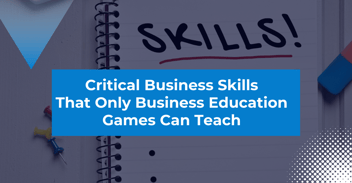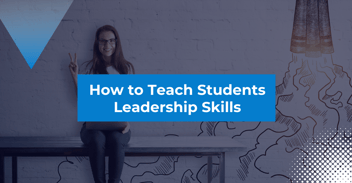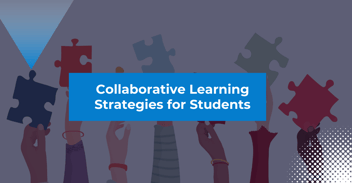How Can Professors Prepare Marketing Students for the Digital Workplace?
-min.png?width=800&name=Blog%20Image%20Template%20UPDATED%20(10)-min.png)
With the rise of artificial intelligence and automation, the skills once needed in the workplace are becoming redundant. For any graduate, the prospect of facing the competitive job market is daunting enough let alone in today’s transitioning environment. So how can professors better prepare their marketing students to face this uncertainty?
A mixture of both soft and hard skills will be essential to thrive in the digital workplace, a with a focus on the ‘human skills’ that can’t be automated. Here, we’ve compiled a list of the top skills students will need to stand out from the crowd.
Creativity
One of the top skills listed by Forbes, creativity is a soft skill that’s highly valuable and irreplaceable by robots. Regardless of their profession, students will benefit greatly if they can demonstrate an ability to be unique, imaginative and proactive in coming up with new ideas. Essentially, creativity and innovation are exactly what helps organizations and marketers move ahead of the competition and achieve organizational success.
Critical thinking
The ability to think clearly and rationally is essential for any profession. From analysing information to providing logical reasoning and evaluation, critical thinking will help students solve problems and seek sources of information to better inform themselves.
Students won’t be able to learn these skills through traditional means such as textbooks, instead they will need to be given the opportunity to practice these skills through experiential learning with business simulations and real-world practice.
Strategic thinking
Strategic thinking is critical for developing a clearly defined and focused business vision. It sets the foundation to any successful marketing initiative and without strategy those activities can be meaningless. Failing to have a strategy is one of the most common mistakes students make.
To best prepare students for the future workplace, professors will need to blend strategy with execution.

Emotional Intelligence
Emotional intelligence is the self-awareness of recognising and understanding one’s own emotions, and those of the people around them. While there are undoubtably personal benefits to being more emotionally intelligent, within the workplace, emotional intelligence will be vital for managing effective relationships and leading and inspiring teams. It will also help students identify conflict and best find resolutions.
Digital citizenship skills
In today’s workplace, it’s impossible not to be affected by the rise of social media. Digital citizenship is the respectability and responsibility in all online communications. Whether your students will work in a specific digital role or not, future employees will have to have a solid understanding of how to develop their online personal and business personas to build their influence within the workplace.
Video
The rise of video is undeniable. Gone are the days when videos were just made for entertainment purposes on Youtube. From social media, email marketing and paid campaigns, to improving SEO value – as one of the most engaging content formats that drives conversions, videos are used everywhere!
With the latest tools, smart phones and apps, video is now more accessible than ever before and there is less reliance on creative agencies for video production. Marketing and business students will benefit greatly if they learn these skills.
Technology is changing the workplace
Technology is certainly having an impact not only on marketing but the entire business world. The digital workplace is not one to be feared as it presents more opportunities than ever before. However, professionals and students must adapt their skill sets to ensure they continue to be relevant – and this starts with professors providing the essential tools to guide students for their upcoming careers.
Discover our approach to teaching marketing in the digital age. Our free guide contains many tips for building an engaging and relevant programme in today’s digital world.



